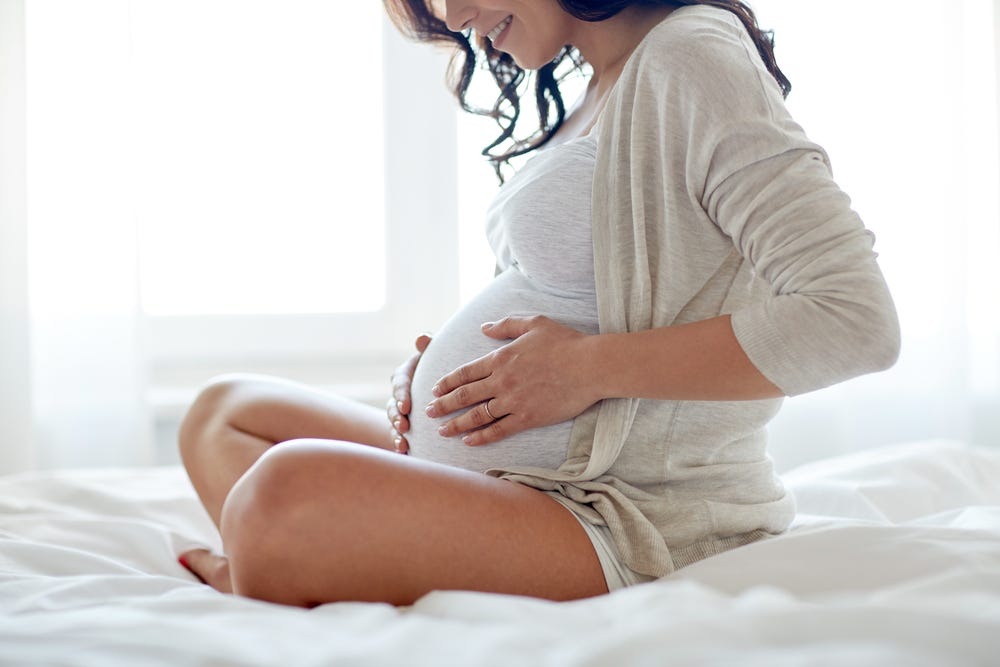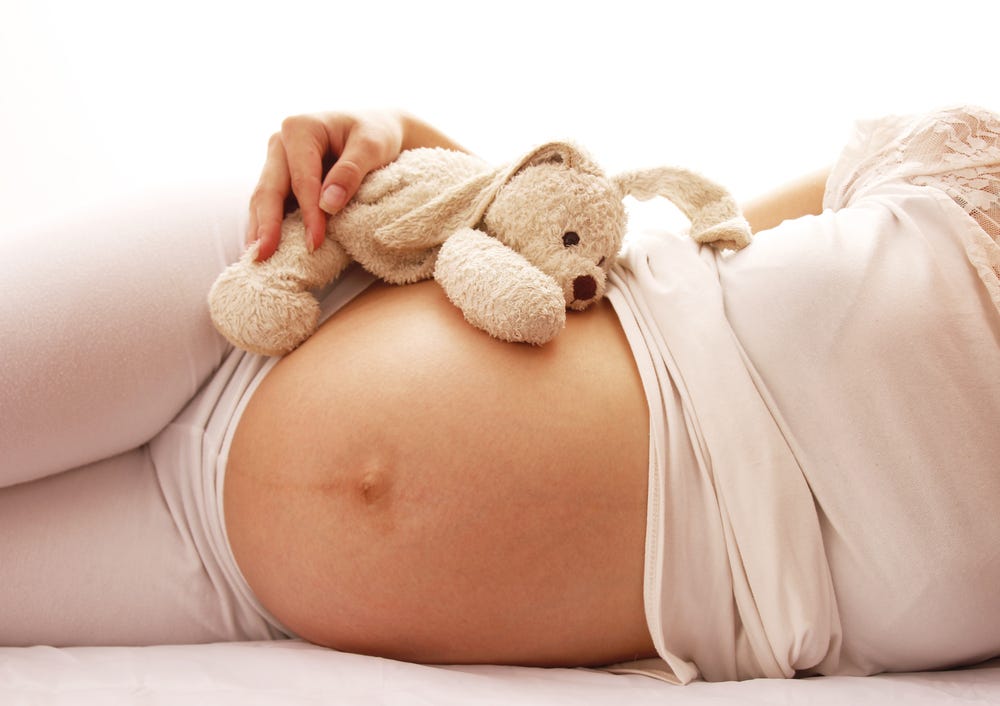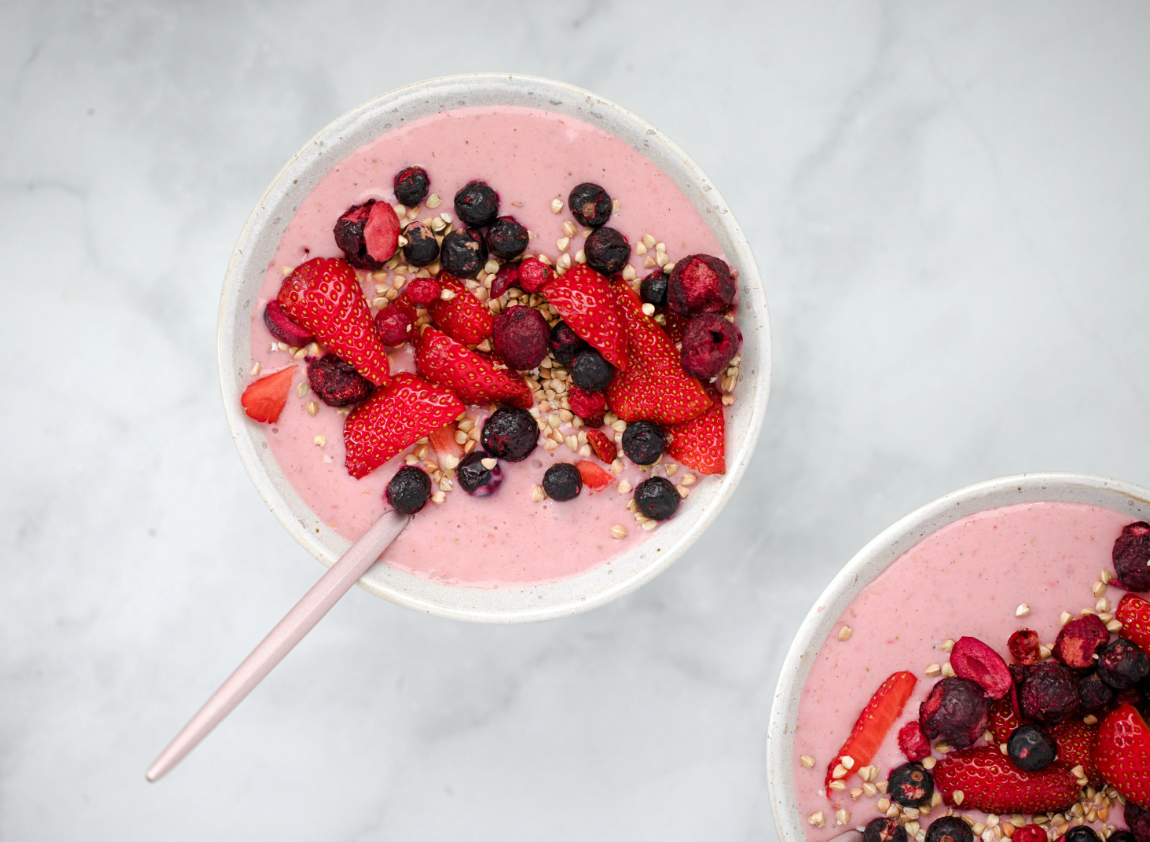
There’s no doubt that pregnancy can leave you feeling a little more tired than usual. But if you’re feeling weak, run down and fatigued, it could be a sign of low iron. Pregnancy requires more blood volume to support your growing bub, which in turn means a higher demand for iron. There are steps you can take before falling pregnant and during the course of your pregnancy to make sure you’re getting enough iron to support you and your baby.
Whether you’re preparing to fall pregnant or you’ve just found out you’re expecting, here’s what you need to know about iron and pregnancy.
Iron and pregnancy
Iron plays a key role in the formation of red blood cells. During pregnancy, your blood volume increases by up to 45%1. To help with the production of these extra red blood cells, your iron and vitamin intake needs to increase to support the body’s production of haemoglobin. Haemoglobin is an iron-rich protein that gives blood its red colour and carries oxygen around your body and importantly, to your growing baby.
While sufficient iron intake throughout pregnancy is important, it’s essential during the final 10 weeks of pregnancy. During these last weeks, your baby starts to build its own iron stores to see it through the first 6 months of life.
Low iron in pregnancy can lead to health conditions like anaemia. While mild anaemia isn’t likely to affect your pregnancy, severe cases can cause several issues for both you and your baby2. Severe anaemia has been linked to premature birth, low birth weight and some babies may even develop anaemia themselves.


How much iron do you need in pregnancy?
Your body needs roughly three times as much iron when you’re pregnant compared to when you’re not, so it’s no wonder low iron during pregnancy is a common issue. Between 15% to 25% of all pregnant women will experience low iron levels at some stage3.
Pregnant women need 27mg of iron daily to ensure they’re meeting their recommended intake4. With that said, it’s important to make sure you don’t consume too much iron, the nutrient reference values in Australia outline the upper limit of iron intake in adults to be 45mg/day and any more than this may be considered toxic5.
Low iron symptoms
The signs of low iron in pregnancy can overlap with normal pregnancy symptoms, which makes recognising low iron tricky. Here are some of the low iron in pregnancy symptoms to keep an eye out for:
- Fatigue and weakness
- Dizziness or lightheadedness
- Pale or yellowish skin
- Heart palpitations
- Shortness of breath
- Irritability
- Trouble concentrating
If you think you could be suffering from low iron, the first step is to book in with your GP. They’ll be able to run a blood test to check your iron levels. If it’s caught early, it can be easily addressed with an effective treatment plan.


Causes of low iron in pregnancy
Iron deficiency in pregnancy can be caused by several factors, but your GP should be able to help you narrow down the root of the issue.
Here are the three main causes of low iron in pregnant women:
- Iron deficiency: When you’re pregnant, your blood volume increases along with the demand for iron and other vitamins to create red blood cells. Iron deficiency can occur when you don’t have enough iron to produce sufficient haemoglobin, causing the levels to drop.
- Folate deficiency: Folate or folic acid is a B group vitamin that supports your body to make red blood cells. Red blood cells are particularly important in developing the baby’s neural tube and in turn helps to prevent neural tube defects, like spina bifida. Insufficient folate may cause difficulty making red blood cells and as a result, this can cause a mother to have low iron during pregnancy6.
- Vitamin B12 deficiency: Similar to folate, Vitamin B12 is essential in the production of red blood cells however, we cannot make this B group vitamin internally, we must ingest it from animal sources in our diet or supplements. People who are vegetarians and vegans are at a greater risk of developing a B12 deficiency. When the body is malnourished from the essential vitamins and minerals required to produce red blood cells, this may cause an iron deficiency and impact the development of a baby during pregnancy7.
While deficiencies in other vitamins and minerals can lead to an iron deficiency, pregnancy itself increases the risk of being iron deficient.
How can I increase my iron during pregnancy?
There are several foods you can eat to try and naturally increase your iron. This includes iron-rich foods, like red meat, poultry, leafy green vegetables, legumes, nuts and fortified cereals.
With that said, some pregnant women find it difficult to meet their iron requirements through diet alone. Your GP will be able to test your iron levels and provide recommendations including iron supplementation, to suit your individual needs, so you can boost and maintain healthy iron levels throughout your pregnancy.
Resources
- https://www.ncbi.nlm.nih.gov/pmc/articles/PMC4928162/
- https://www.hematology.org/education/patients/anemia/pregnancy
- https://www.growmedical.com.au/blog/low-iron-in-pregnancy
- https://www.health.qld.gov.au/__data/assets/pdf_file/0023/150089/antenatal-iron.pdf
- https://www.eatforhealth.gov.au/nutrient-reference-values/nutrients/iron
- https://www.ncbi.nlm.nih.gov/pmc/articles/PMC7908542/
- https://www.ncbi.nlm.nih.gov/pmc/articles/PMC7344137/


